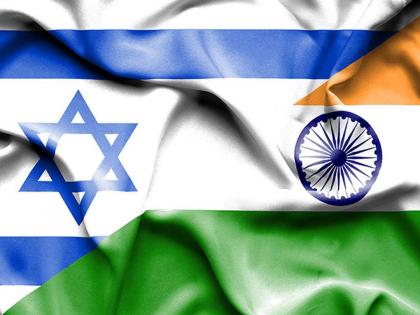Our relationship with Israel
By Vappala Balachandran | Published: September 12, 2023 05:20 PM2023-09-12T17:20:39+5:302023-09-12T17:21:31+5:30
Both countries were aware of Indo-Israel cultural ties since time immemorial

Our relationship with Israel
Currently our relations with Israel are vibrant in all fields: diplomatic, commercial, technological and security. That was not the case between 1947 and 1992 when the then geopolitical compulsions made us limit our ties only to consular and trade. It was in 1992 that we raised it to full diplomatic status.
However, that did not mean that we had neglected our core relationship with Israel during that period. The only difference was that it was through intelligence channels. Both countries were aware of Indo-Israel cultural ties from time immemorial, more specifically since CE 68 when thousands of exiled Jews reached Kodungallur, then called Muziris, in Kerala. Primeval Spanish-Jew traveller Rabbi Benjamin of Tudela who visited “Khullam” (Kollam) in Kerala between 1159-1173 CE had recorded that he had met “thousands of Israelites knowing the law of Moses and prophets” in that region. An annotated translation of his travelogue published in 1907 from London said that CE 68 corresponded to the Roman destruction of the Second Temple in Jerusalem.
Till 1992, our relations were mainly security oriented, yet sometimes it also extended to diplomacy and defence. Our relationship assumed greater importance in the 1980s when we faced tacit “technology denial” of high technology security equipment from Western countries, perhaps due to our independent foreign policy. That existed even after Prime Minister Indira Gandhi’s assassination in 1984.
We had to equip our new counter-terrorist units which were hastily raised after the PM’s assassination. I remember how our requests for technology to counter explosives-laden remote controlled toy planes against Prime Minister Rajiv Gandhi were ignored by Western agencies even after credible intelligence reports. Israel with no diplomatic relations was of immense help in all these areas. Very few of those of us involved in that relationship till 1992 are alive now.
Two Mossad seniors of this era were of great help. The first was Nahum Admoni who was the chief between 1982 and 1989. Admoni, as deputy director, had visited India to meet the late R N Kao in the 1960s after the latter had set up R&AW. As Mossad chief, he again visited in 1988. The second was Shabtai Shavit, Mossad chief during 1989-1996. Shavit had just taken over when I had met him in 1989. Unfortunately, he passed away on 5th September 2023.
Shavit’s term was particularly stressful as he had to face crucial developments affecting Israel and the world: The collapse of the Soviet Union (1988-1991), the First Gulf War (1990-91), Israeli Peace with Jordan (1994) and assassination of Prime Minister Yitzak Rabin (1995). It must have been particularly devastating for him to watch the preventable assassination of Rabin on November 4, 1995, as Mossad had worked closely under Rabin to achieve full diplomatic relations with Jordan on 26 October 1994.
Post retirement, he had penned his experience in his memoir titled “Head of Mossad: In pursuit of a safe and secure Israel”, originally in Hebrew, later in English in 2020. In this memoir, he had given details of his undercover work in Iran when it was an Israeli ally before the 1979 revolution. However, he was not sanguine about whether the US negotiations with Iran would result in peace as they would “squeeze more and more concessions” from America. Shavit also had joined hundreds of former Mossad employees including chiefs in opposing PM Benjamin Netanyahu’s legislation to control the Israeli upper judiciary.
One remark in his memoir on normalising relations with an erstwhile unfriendly country had proved correct in an incident in Libya. Shavit had said that “delicate diplomacy must begin with clandestine contacts”. On August 28, 2023, Libyan foreign minister Najla el-Mangoush had to flee to Turkey for her safety as violent demonstrations had started in Tripoli and other cities after an announcement by the Israeli foreign ministry that she had met Israeli foreign minister Eli Cohen in Rome. Following this, Netanyahu publicly rebuked Cohen on August 30 and ordered that all sensitive public statements should be cleared by him.
The author is a former special secretary, Cabinet secretariat.
Views expressed are personal.